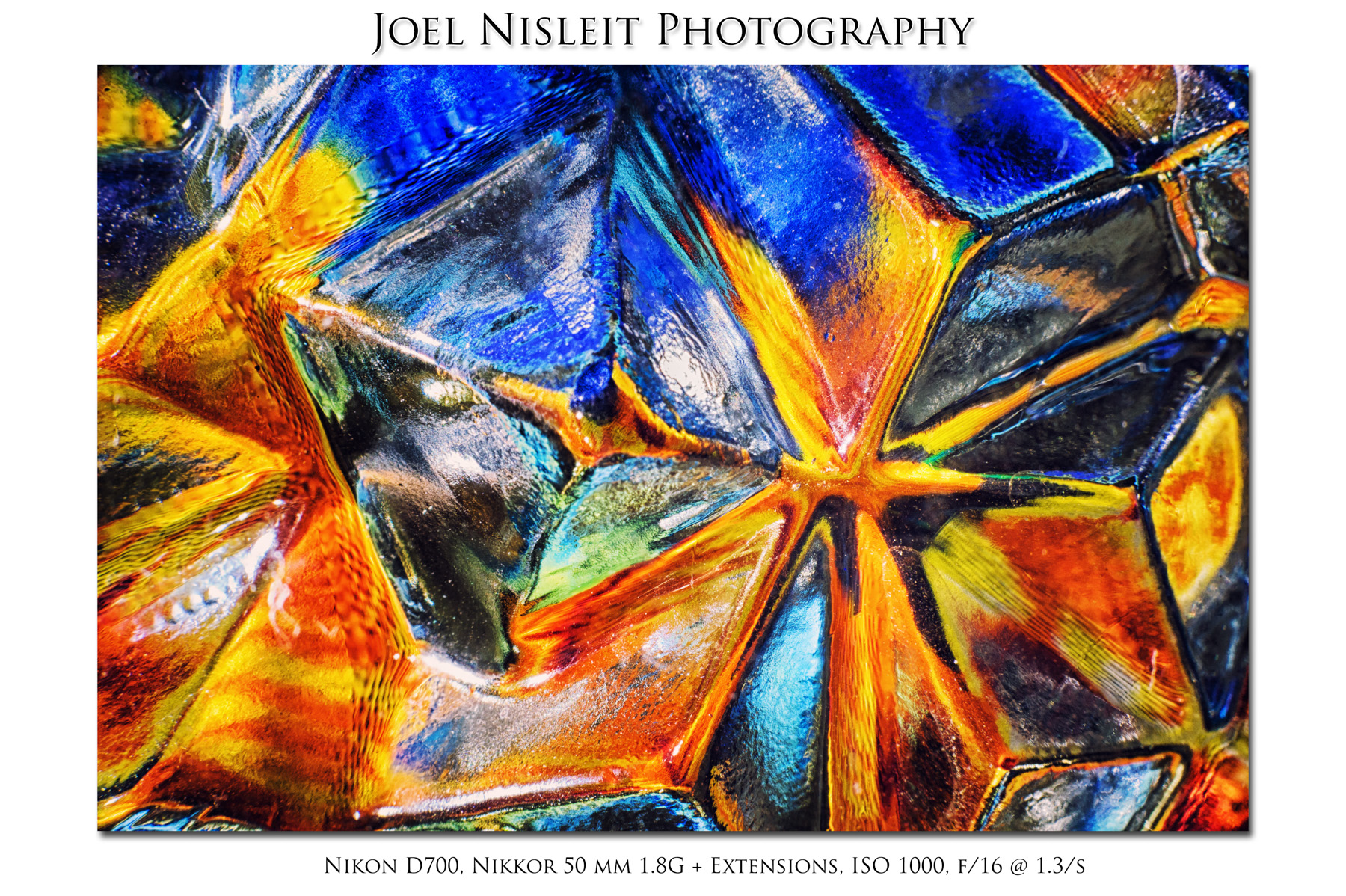
Hawaiian Shirt and Leaf Abstracts
In trying to keep up with all of my self-imposed photographic obligations, I made some abstract works for the local camera club to show at the August meeting. I’ll share the details and how I made the images.
“Abstract” is defined in Oxford American Desk Dictionary and Thesaurus as “Achieving its effect by shapes and colors rather than by realism” and “extract, remove.” To make these abstracts, I wanted to find a macro subject that lent shapes, colors and forms for me to extract into art.
Remembering an idea about shooting through other materials, I decided to look for translucent objects that I could place color behind and then shoot through. I found a Glenlivet drinking glass that had an ornate bottom, which when viewed through a macro lens was full of crystalline patterns. I set the glass on top of a Hawaiian shirt that had colors I liked, specifically warm and cool colors that would contrast and direct the eye.

I lit the subject with an off-camera LED light. I turned the camera to live view, the first time I’d ever used that mode to shoot, so I could rotate the glass and move the light to find the design I wanted on the LCD without having to waste frames or strain to look through the viewfinder. I don’t use live view in general, but this is the type of photograph it’s made for. I shot until the battery died, which wasn’t long with continuous live view. I managed to make about 30 frames and selected the best three for finishing.

This exercise was educational because I discovered that, at least for me, shape and detail in an image seem to take precedent over color. I know that the eye goes to warm colors first, but I also see that it prefers detail over color and the balance between the importance of shape and color is delicate. What this means is no matter how hot or attractive a color is, the eye prefers to examine a detailed area foremost.
I rotated two of the images for two distinct compositions. Take a look.


For another abstract subject, I chose a maple leaf from our tree in the front yard. Again I rigged a macro platform with my versatile Manfrotto tripod. I used the built-in level to level the legs and then removed the center column and placed it sideways, which enabled me to use the column as a sliding macro rail to adjust focus. If you do a lot of macro photography, I’d recommend investing in a macro rail or bellows, which allow for smoother, finer movements. The versatility of the ball head enables me to position the camera correctly regardless of the orientation of the center pole. The goal is to get the sensor plane as parallel with the subject as possible for sharp detail.
To hold the leaf, I turned to the Plamp, a flexible clamp system. Again I used the LED to illuminate the subject from behind, bringing out the fine textures of the leaf.



Takeaway lessons
- Live view is incredibly helpful in macro shooting or when the camera is in positions that make looking through the viewfinder awkward.
- Detail has greater control over the eye than color.
- Shape is contrast.
- Rotate abstract images for drastically different compositions.
- Be resourceful with the equipment you have.
